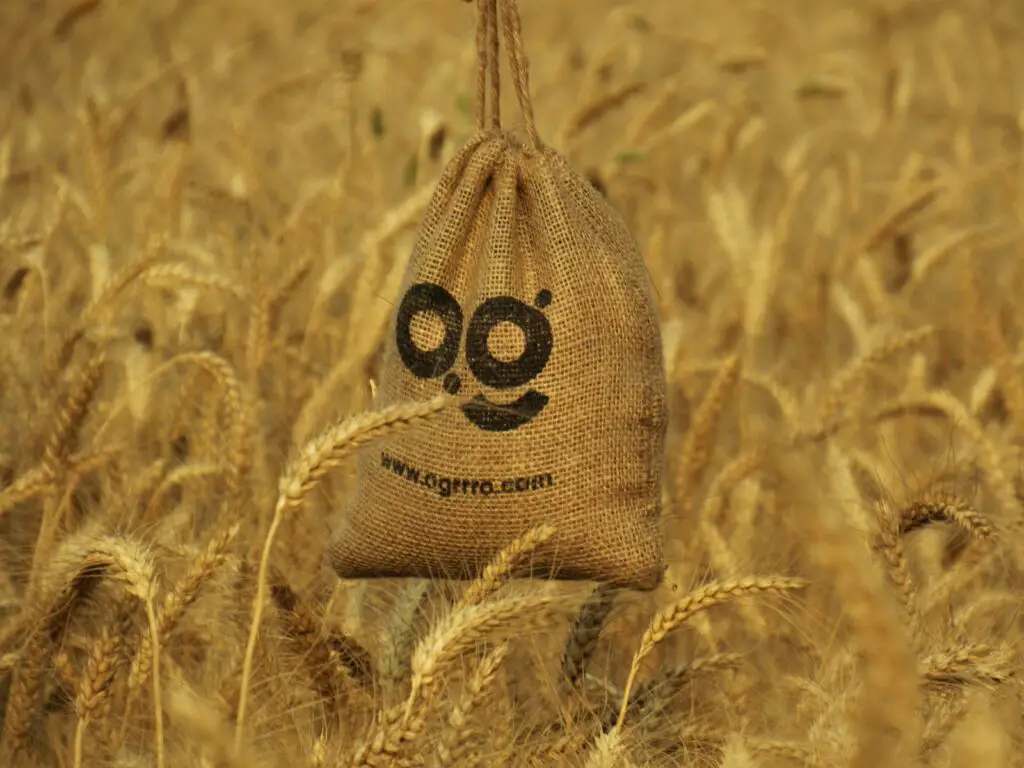Sugar and flour need proper packaging to avoid getting in contact with the surrounding conditions. Both items have to stay safe from moisture, air, weevils, and sunlight to stay in good condition for a long time. Whether packed in an impenetrable container or a simple paper bag, their seal has to be up to the mark. Or else, sugar may attract a hoard of ants while flour may fall off.
Here, the credit goes to their manufacturers, who try to seal them properly and ensure their packages are eco-friendly. They design packages with respect to the environment and try their best to make them recyclable, thereby reducing their impact significantly.
Are Sugar and Flour Bags Made from Recyclable Material?
Yes, these bags are recyclable, but you have to check with the local recycling center whether they take up the responsibility or not. If not possible, you can go for composting sugar and flour bags, which are also based on their material. Sugar bags comprise iron boxes and plastic and paper bags while flour bags have multiple layers, making recycling easy (Group, 2019).
Since both items are essential for all households, you cannot avoid accumulating their waste in any way. It doesn’t matter if you are a Masterchef or just a novice. They will always be in your use and eventually give off the waste in bags or containers.
According to a rough estimate, flour consumption is almost 173 lbs per household annually, which is a fair share of US flour consumption. But the question is still there: how can you dispose of sugar and flour bags properly?
The only answer is recycling because you cannot put so much burden on the Earth to handle its decomposition every now and then. Even though most manufacturers now package sugar and flour in biodegradable bags, it doesn’t mean you shouldn’t play your part in keeping the environment safe and healthy.
Your local recycling center should be the first stop to ask for recycling services. Fun fact- paper can be recycled up to 6 times before it is torn into smaller pieces and goes into the garbage bin.
However, if by any chance, the recycling center refuses to take on the responsibility, don’t stop here as there are many more options to go for:
Is Composting Possible for Sugar and Flour Bags?
Yes, flour and sugar bags are compostable. Though, the method and time period depend upon their material. Organic versions are easy to compost because of their authentic biodegradable nature.
Moreover, if you have hired composting services or do it yourself, be sure to put flour bags and other degradable materials in a compost pile or bin, as paper decomposes faster and adds bulk materials to the pile (Rinkesh, 2019).
Can Sugar Bags be Recycled?
When estimating the amount of sugar consumed by an average US household, you would be amazed to see the figures. Studies have shown that the figures have come out to be 150 lbs per US household in a year, which is a fair quantity, considering the controlled use of sugar.
Here, controlled use refers to maintaining a quantity that neither creates health challenges (deficit) nor causes health issues (excess)—just the right amount to bring to a bland dish.
After use, sugar bags also need proper disposal. Even though they are recyclable, you have to confirm with the concerned recycling center whether they are taking up the responsibility to recycle them.
Is it Possible to Use Freezer Bags to Store Flour?
If you are someone who doesn’t like the idea of keeping visiting grocery stores every now and then, we have some advice for you:
While doing groceries, go for bulk purchases to not only save your time but also to enjoy lower prices. Though, without proper storage, all of your prior efforts would go in vain.
Yes, storing your food items, especially flour, is essential to ensure smooth meal prepping. If taken in order, you can save both items for many months or even years!
Remember that flour bags are not as reliable as you think. Transferring the flour into an airtight container can prolong its shelf life. In fact, another way is to use freezer bags for the same purpose.
Since these bags are designed to slow down microbial activities, the flour will not come in contact with heat, water, and air, which would affect its shelf life. Just be certain about one thing- bring both items to room temperature before use; otherwise, you might not get the same taste.
Can You Do the Same with Sugar, i.e. Refrigeration?
No doubt, it’s crucial to keep sugar in a safe and secure place; otherwise, there would be ants and many other invited guests enjoying their meals! If you are not putting sugar inside the refrigerator, where are you storing it then?
Although sugar doesn’t spill or spoil, it is prone to parasite attacks that may not leave it in good condition for us. If you don’t have a satisfactory answer and don’t seem to come up with any, then don’t waste time thinking- just take your sugar container and put it inside the refrigerator. Rest assured, it must not be in the paper bag because moisture in the fridge may weaken it.
Wrapping Up
Flour and sugar bags are the easiest discomposing materials that don’t go hard on the environment. Since they are made with organic and paper material, they can easily break down and decompose within weeks. In fact, they can be a good addition to the compost pile as well.







